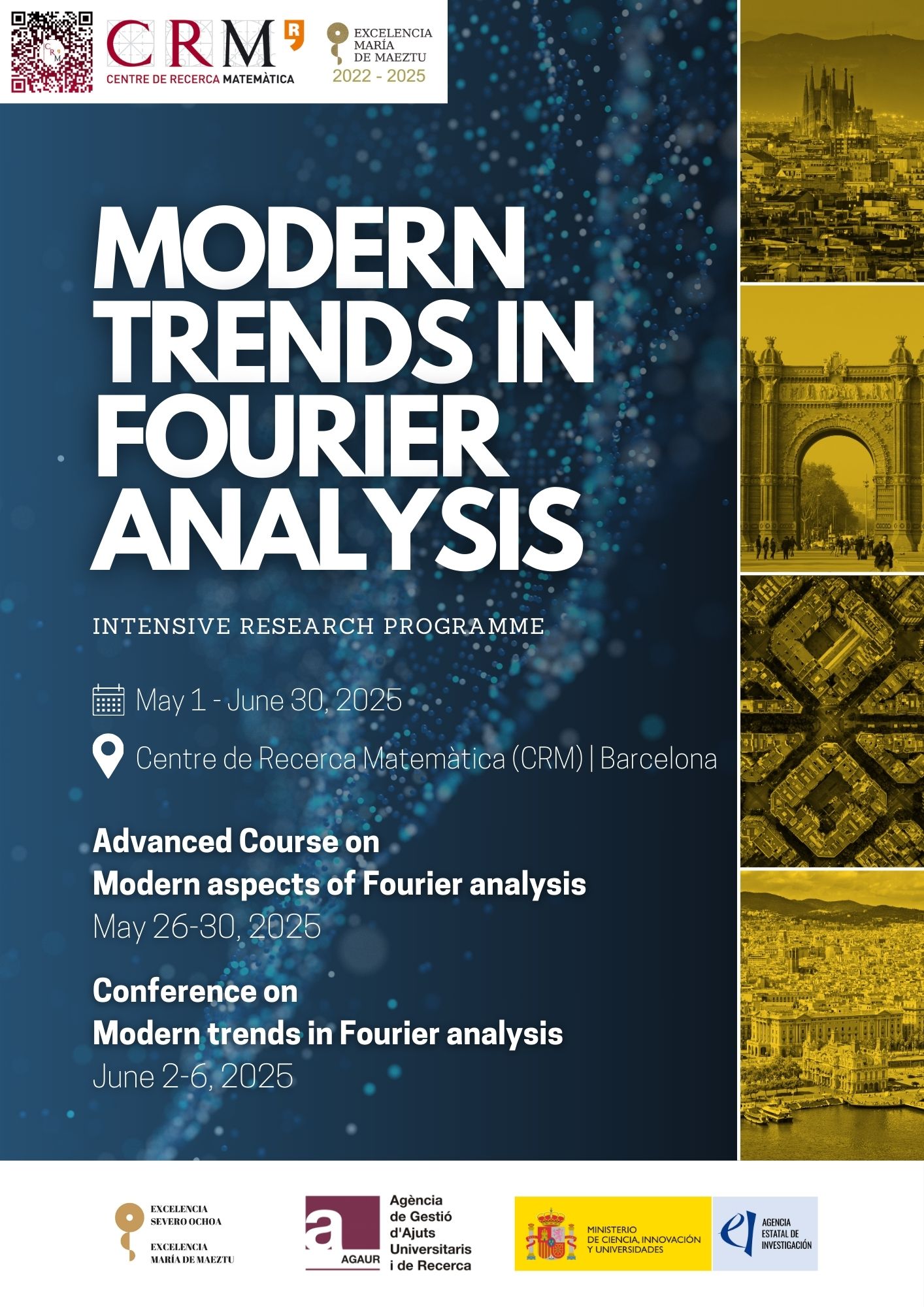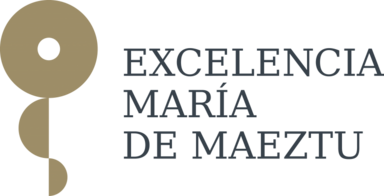IRP on Modern Trends in Fourier Analysis
Sign into June 30, 2025
If you wish to register only for one of the activities, please choose the one you are interested in from the list
Presentation
This program focuses on recent developments in Harmonic Analysis, Geometric Measure Theory, and Constructive Approximation, with an emphasis on Fourier uncertainty principles, restriction estimates in Fourier analysis, and analysis in discrete geometry. The aim is to create an ideal atmosphere for significant progress in these areas. To achieve this, leading scientists with expertise in Fourier analysis will bring together their diverse backgrounds, interact, and collaborate to stimulate the development of research. In addition to the Conference and Advanced Courses described below, there will be regular activities such as weekly seminars and group research sessions.
Seminars will be conducted during the programme.
DESCRIPTION
The plan is to take three five-hour advanced courses. The timetable would be courses from Monday to Friday morning, short communications of the participants on Monday, Tuesday and Thursday afternoon, cultural outing and dinner on Wednesday afternoon and school closing at noon on Friday.
-
Fourier uncertainty principles
-
Restriction estimates in Fourier analysis
-
Analysis and discrete geometry
OBJECTIVES AND ACTIVITIES
The following activities are planned in the course of the program:
– May 26-30, 2025: Advanced Courses on modern aspects of Fourier analysis. We encourage our speakers to publish the lecture notes in the series “Advanced Courses in Mathematics CRM Barcelona” by Birkhäuser. The main goal of those courses is to offer to graduate students and interested researchers introductory expositions to the topics.
–June 2-6, 2025: Conference “Modern trends in Fourier analysis”.
Satellite conference: Sobolev inequalities and related topics. Dates: 19th to 22nd May 2025
Scientific and Organizing Committee
| Dmitriy Bilyk | University of Minnesota, United States |
| Emanuel Carneiro | The Abdus Salam International Centre for Theoretical Physics, Italy |
| Diogo Oliveira e Silva | Instituto Superior Técnico, Portugal |
| Betsy Stovall | University of Wisconsin–Madison, United States |
| Sergey Tikhonov | ICREA, Centre de Recerca Matemàtica |
Local Organizers
| Carlo Bellavita | Universitat de Barcelona |
| Óscar Domínguez | CUNEF |
| Egor Kosov | Centre de Recerca Matemàtica |
| Olli Saari |
UPC, Centre de Recerca Matemàtica |
| Sergey Tikhonov | ICREA, Centre de Recerca Matemàtica |
Invited Visiting Researchers
| David Beltran | University of Valencia |
| Andrei Bondarenko | NTNU |
| Dmitriy Bilyk | University of Minnesota |
| Elena Cordero | Università di Torino |
| Mateus Costa de Sousa | BCAM |
| Emanuel Carneiro | The Abdus Salam International Centre for Theoretical Physics, Italy |
| Óscar Domínguez | CUNEF |
| João Ferreira | IMPA |
| University of Bologna | |
| Felipe Gonçalves | IMPA |
| Alex Iosevich | University of Rochester |
| Joaquín James Cano | BCAM |
| Vjekoslav Kovač | University of Zagreb |
| Alexei Kulikov | Tel Aviv University |
| Nir Lev | Bar-Ilan University |
| José Ramon Madrid Padilla | Virginia Tech |
| Ricardo Machado Motta | BCAM |
| Eugenia Malinnikova | Stanford University |
| Svitlana Mayboroda |
ETH Zürich |
| Askhat Mukanov | Institute of Mathematics and Mathematical Modeling |
| Akbota Myrzakul |
Astana IT University |
| Giuseppe Negro | IST Lisboa |
| Shahaf Nitzan | Georgia Institute of Technology |
| Yerlan Nursultanov | Kazakhstan Branch of Lomonosov State University |
| Yumeng Ou | University of Pennsylvania |
| Kristina Oganesyan | Ghent University |
| Andrea Olivo del Valle | BCAM |
| Diogo Oliveira e Silva | Instituto Superior Técnico, Portugal |
| Lilian Pierce | Duke University |
| Jill Pipher | Brown University |
| Danylo Radchenko | Lille University |
| João Pedro Ramos | EPFL, King’s College London |
| Kristian Seip | NTNU |
| Miquel Saucedo | CRM |
| Lenka Slavikova | Charles University Prague |
| Betsy Stovall | University of Wisconsin-Madison |
| Maud Szusterman | Université Paris Diderot |
| Durvudkhan Suragan | Nazarbayev University |
| Krystal Taylor | Ohio State University |
| Nazerke Tleukhanova | L.G. Gumilev Eurasian National University |
| Ioann Vasilyev | CY Cergy Paris Université |
| Guilherme Vedana | IMPA |
| Hong Wang | Courant Institute of mathematical Sciences (NYU Courant) |
| Ferenc Weisz | Eötvös Loránd University |
| University of Hamburg | |
| University of California | |
|
Norwegian University of Science and Technology |
|
For inquiries about the activity please contact the research programs coordinator Ms. Núria Hernández at nhernandez@crm.cat
|







